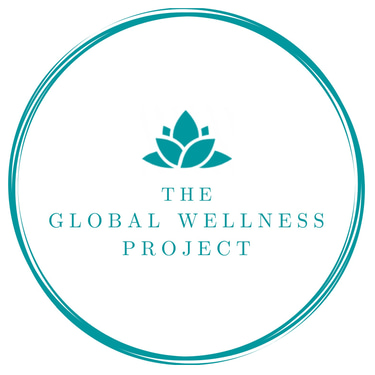Exploring the Global Wellness Economy Monitor 2024 - Part IV
Emphasizes emotional intelligence, self-awareness, and stress management to enhance emotional resilience and interpersonal relationships.
HEALINGWELLNESS
12/6/20243 min read


Part IV: Emotional Wellness – Managing Feelings for a Healthier Life
Introduction
Emotional wellness is the ability to understand, manage, and express one’s feelings in a constructive way. The Global Wellness Economy Monitor 2024 recognizes the importance of emotional health, especially as individuals navigate personal challenges and global uncertainties. Emotional wellness goes beyond managing negative emotions; it includes developing emotional intelligence, fostering healthy relationships, and cultivating a resilient mindset. In this article, we explore the key components of emotional wellness, emerging trends, and practical strategies to maintain emotional balance and enhance overall well-being.
Understanding Emotional Wellness
Emotional wellness involves the awareness and regulation of emotions. It requires an understanding of one’s emotional responses and a deliberate effort to manage them constructively. Emotional wellness is closely linked to mental health but focuses more specifically on managing emotional reactions and interactions with others.
Core Components of Emotional Wellness
Emotional Intelligence (EI)
Emotional intelligence, defined by Daniel Goleman, includes the ability to recognize one’s emotions and those of others, use emotional information to guide thinking and behavior, and manage emotions in a healthy way. High EI has been linked to improved relationships, decision-making, and mental well-being.Self-Awareness
Self-awareness is the ability to recognize and understand one's emotions and their impact on others. Individuals who are self-aware are better at managing stress and maintaining emotional balance.Stress Management
Stress is a natural part of life, but its management is crucial for emotional wellness. Chronic stress can lead to emotional exhaustion, irritability, and other mental health issues. Techniques like mindfulness, deep breathing, and relaxation exercises can help manage stress.Healthy Relationships
Strong, supportive relationships are integral to emotional wellness. Research shows that positive social connections are linked to lower risks of anxiety, depression, and stress. Fostering communication, empathy, and mutual respect helps build emotional resilience.
Emerging Trends in Emotional Wellness
Digital Mental Health Solutions: Mobile apps and online platforms that promote emotional well-being, such as therapy services and mood trackers, are gaining popularity.
Workplace Wellness Initiatives: Companies are increasingly investing in emotional wellness programs for employees, integrating stress management workshops and offering mental health resources.
Therapeutic Practices: Therapy options like Cognitive Behavioral Therapy (CBT) and Dialectical Behavioral Therapy (DBT) are becoming more widely accessible, both in-person and through digital platforms.
Social Media's Impact: While social media can be a source of connection, it also raises concerns about its impact on emotional health. Balancing online activity with real-world relationships is critical for maintaining emotional wellness.
Global Insights
The Global Wellness Economy Monitor 2024 shows a growing global focus on emotional wellness, particularly in regions like North America and Europe, where there is increasing demand for mental health support services. In Asia-Pacific, traditional healing practices are being integrated with modern therapeutic methods to offer comprehensive emotional care.
Practical Strategies for Emotional Wellness
Develop Emotional Intelligence: Practice mindfulness to become more aware of your emotional reactions. Journaling can help reflect on emotions and trigger personal growth.
Practice Self-Compassion: Treat yourself with the same kindness and understanding you offer to others. Self-compassion enhances emotional resilience.
Manage Stress: Regular exercise, yoga, and meditation are effective ways to lower stress levels and support emotional health.
Foster Positive Relationships: Engage in meaningful conversations, support friends and family, and practice active listening.
Seek Professional Support: If emotional challenges persist, therapy or counseling can offer valuable strategies for managing emotions and improving mental health.
The Role of Emotional Wellness in the Global Wellness Economy
Emotional wellness has seen increasing investment, as more individuals and organizations recognize its importance. With workplace stress, burnout, and mental health crises on the rise, the demand for emotional wellness resources is expected to continue growing. The Global Wellness Economy Monitor 2024 shows that the market for emotional wellness tools and services is expanding, driven by technological innovations and a broader cultural shift toward prioritizing mental and emotional health.
Conclusion
Emotional wellness is an essential aspect of overall health, helping individuals cope with life's challenges, build meaningful relationships, and achieve a sense of fulfillment. By developing emotional intelligence, practicing stress management, and nurturing healthy relationships, individuals can enhance their emotional resilience and live healthier, more balanced lives.
Citations
Global Wellness Institute. (2024). Global Wellness Economy Monitor 2024.
Goleman, D. (1995). Emotional Intelligence: Why It Can Matter More Than IQ. Bantam Books. This book outlines the five elements of emotional intelligence and its role in personal and professional success.
McEwan, K. (2021). The Science of Stress: How to Manage Emotional Responses. Journal of Emotional Health, 22(3), 45-56.
American Psychological Association. (2022). Managing Stress. Retrieved from APA Resources.
Connect
Explore wellness topics and connect with providers.
Contact Us
Join
info@theglobalwellnessproject.com
© 2024. All rights reserved.
